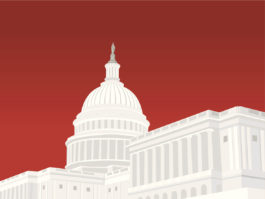Countless employers are navigating uncharted territory as the COVID-19 crisis continues to affect business operations across the nation. To ensure our clients understand exactly what the CARES Act legislation provides, we want to take a closer look at some of the legislation that specifically targets you as an employer.
Our focus here is on the legislation surrounding the deferred payment of employer payroll taxes, as well as certain revisions made to the Family and Medical Leave Act and the Families First Coronavirus Response Act on the limitation on paid leave, the Emergency Paid Sick Leave Act limitation, and regulations on paid leave for rehired employees.
Deferred Payment of Certain Employer Payroll Taxes
Under the CARES Act, the employer’s payment of the required 6.2% of the Social Security tax on an employee’s wages, up to the annual wage base ($137,700 for 2020), incurred from March 27, 2020, through December 31, 2020, may be deferred. Self-employed individuals are eligible for a deferral of 50% of their 12.4% self-employment tax on income, and their deferral includes related estimated tax payments.
The deferred amount is due in two payments made over a two-year period. The initial payment of 50% will be due December 31, 2021, and the remaining 50% will be due on December 31, 2022. There will be no assessment of failure-to-deposit penalties and no interest will be charged if these installments are made by these dates.
Notably, the deferral does not apply to the employee’s portion of 6.2% Social Security tax, to the employee or employer portions of the 1.45% Medicare tax, nor to employee income tax withholding. Only the employer’s portion of the 6.2% Social Security tax is eligible for deferral. This legislation also does not change the employer’s filing deadlines for Social Security and Medicare tax reporting.
Employers that receive a Paycheck Protection Program (PPP) loan may not defer the deposit and payment of the employer’s share of Social Security tax due on or after the date that the PPP loan is forgiven under the CARES Act. The IRS has issued guidance indicating that employers who have received a PPP loan, but whose loan has not yet been forgiven, may defer deposit and payment of the applicable taxes that would otherwise be required to be made beginning on March 27, 2020, through the date the lender issues a decision to forgive the loan. The deferred amount continues to be due in two payments made over the two-year period noted above.
Additional guidance on rules for deferral and on the redesign of payroll tax forms is expected from the IRS. For now, there are some things to keep in mind regarding employer responsibility. If you use a third party, such as an agent or payroll provider, to make payroll tax deposits, the full responsibility for understanding your eligibility and for timely payment submission still rests with you, the employer. It is prudent for an employer to use their business address for payroll tax filings, rather than the address of the payroll provider, so the employer is kept informed of payroll tax notifications from the IRS. If your payroll provider is deferring payment of taxes under these new rules, that deferral should obviously be passed along to you. Additionally, the responsible party’s liability for trust fund portions of employee income tax withholding and the employee portions of both Social Security and Medicare taxes remains unchanged.
Limitation on Paid Leave
The Family & Medical Leave Act of 1993, as amended, established legislation for Public Health Emergency Leave. The Families First Coronavirus Response Act (FFCRA) amended and expanded this legislation in the wake of the COVID-19 crisis.
Through the FFCRA, and in conjunction with the Emergency Family Medical Leave Act (EFMLA), employees (after 30 calendar days of employment) qualify for up to 12 weeks of paid leave if they are unable to work or telework during the public health emergency, as they are caring for a child younger than 18 years old because of a school or childcare facility closure. The first two weeks are unpaid, and the subsequent weeks must be paid at 2/3 of their regular rate of pay.
The CARES Act has again amended the legislation, setting a per-employee limit for the employer’s required payment of emergency family medical leave. The Act states an employer is not required to pay more than $200 per day and $10,000 in aggregate per employee.
Emergency Paid Sick Leave Act Limitation
The Emergency Paid Sick Leave Act (EPSLA) requires employers to pay up to 80 hours of emergency paid sick leave for employees meeting certain conditions.
For employees on leave due to: 1) a federal, state, or local quarantine, 2) a quarantine advised by a health provider, or 3) because they are experiencing symptoms of COVID-19 or seeking diagnosis, employers are required to pay them 100% of their regular pay rate while on leave. For employees on leave while 4) caring for an individual in quarantine, 5) caring for a child because of school or childcare facility closure, or 6) while experiencing any other substantially similar condition specified by the Secretary of Health and Human Services in consultation with the Secretary of Treasury and Secretary of Labor, employers are required to pay them 2/3 of their regular pay rate while on leave.
The CARES Act further amends the EPSLA by placing a cap on the employer’s emergency paid sick leave requirement per-employee. Employers paying emergency paid sick leave to employees out due to reasons 1 through 3 are required to pay no more than $511 per day and $5,110 in the aggregate. Employers paying emergency paid sick leave to employees out due to reasons 4 through 6 are required to pay no more than $200 per day and $2,000 in the aggregate.
Paid Leave for Rehired Employees
In general, the waiting period for an employee to become eligible for emergency paid leave is 30 calendar days post-hire. The CARES Act clarifies that the 30-day waiting period is waived for an employee who is rehired following a lay off occurring after March 1, 2020, as long as the employee worked for you for at least 30 of the last 60 calendar days before the layoff.
Stay tuned…
We are committed to keeping our clients and community up-to-date on pertinent legislative changes throughout the COVID-19 crisis. We will be publishing articles on numerous sections within the CARES Act in the coming weeks. We welcome you to contact us with questions on these provisions, or take a look at our COVID-19 Financial Resource and Tax Center for additional information on related matters.
by Daniel Doiron, CPA





